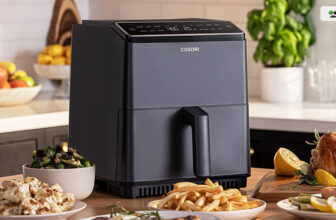Do you have trouble with ants marching through your kitchen? Dealing with an ant infestation can be exasperating, but fear not! This guide will explain how to get rid of ants in the kitchen using effective strategies. Ants invade our kitchen spaces, looking for food, water, and shelter, disrupting our daily routines. Preventing potential damage and maintaining hygienic conditions requires immediate action.
Understanding why ants are drawn to kitchens is essential for addressing and preventing the problem. We’ll examine preventative measures and home and natural remedy for ants in kitchen. Bring peace and tidiness to your home with an ant-free kitchen.
Why Ants in the kitchen
Food attracts ants to kitchens. They like sugary things like syrups, crumbs, and proteins in meats and pet foods. Water is a big attraction, too; ants need it to live. Even strong food smells can bring them in.
Cracks and openings in your kitchen make it an open invitation to ants. Sometimes, ants follow other ants using smell paths they leave behind. Keeping the kitchen clean and sealing the little holes can help keep ants away.
Types of Ants Found in Kitchen
Several types of ants are common in kitchens, including the Sugar Ants (or odorous ant). They are small, brown, or black and have a distinctive, unpleasant smell when crushed; they are drawn to sugary substances and leave visible trails. Carpenter Ants are another frequent visitor, larger in size and usually black or red.
Additionally, you may see Pharaoh Ants, small, yellow to light brown. Additionally, you may encounter small to medium-sized black or brown Argentine Ants.
How to Get Rid of Ants in the Kitchen
The following are the best ways to get rid of ants in the kitchen.
Natural Remedies for Ants in Kitchen
Natural remedies may be highly effective if you’re fighting ants in your kitchen. Here are some popular methods:
1. Using Spices and Herbs
Black pepper, cinnamon, cayenne pepper, and cayenne are natural ant deterrents. Ants have an aversion to these strong scents. You can sprinkle these spices near entry points, ant trails, or areas where ants congregate. Additionally, placing bay leaf leaves strategically in your kitchen can discourage ants from entering certain areas.
2. Utilizing Vinegar and Essential Oils
Vinegar is a versatile natural ant repellent. Mix equal parts of water and vinegar in a spray bottle and spray areas where ants are present or likely to enter. It disrupts their scent trails when vinegar is applied.
Essential oils like tea tree, peppermint, and citrus oils are potent ant deterrents due to their strong fragrances. Mix a few drops with water to create a DIY ant-repellent spray and apply it in ant-prone areas.
3. Diatomaceous Earth (DE)
Mineral diatomaceous earth (DE) is an abrasive powder derived from fossilized diatoms. It punctures ants’ exoskeletons, making them dehydrate and die. Apply DE where ants are active, such as entry points or ant trails. When applying, make sure it remains dry to ensure maximum effectiveness.
4. Borax Solution
The use of borax as an ant bait can be very effective. Mix borax and powdered sugar with water to form a paste-like consistency. Place this mixture in areas where ants are active. While sugar attracts ants, borax poisons them. Over time, they will carry the mixture back to the nest, eliminating the colony.
5. Baking Soda and Powdered Sugar
Baking soda disrupts ants’ digestion and ultimately kills them. Baking soda is enticed into the ants’ mouths with powdered sugar. Mix equal parts of baking soda and powdered sugar in a bowl. Put this mixture near ant trails, entry points, or areas where ants hang out. The sugar will attract the ants, and they’ll consume the lethal baking soda, killing them.
6. Lemon Juice
Lemon juice is a natural ant repellent because of its high acidity and strong citrus scent. Put fresh lemon juice in a spray bottle to use this method. Spray lemon juice in areas where ants are active, such as ant entry points, windowsills, and corners. The overpowering citrus smell confuses ant trails and discourages them from entering your kitchen.
7. Cucumber Peels
Cucumber peels contain bitter compounds that ants dislike, making them effective deterrents. Place cucumber peels near ant entry points, windowsills, or other areas where ants hang out. Bitter compounds in the peels prevent ants from crossing and keep them out of your kitchen.
8. Coffee Grounds
Used coffee grounds have strong smells and acids that deter ants effectively. Sprinkle used coffee grounds near ant entry points, countertops, or where ants are seen. Its strong smell and acidity discourage ants from entering your kitchen and foraging for food.
9. Salt
The dehydrating properties of salt make it an effective ant deterrent. Sprinkle salt at ant entry points, windowsills, and areas where ants are active. The salt dehydrates the ants, which makes them less likely to enter your kitchen.
10. Mint Leaves
Natural ant repellents, such as mint leaves, have a strong, pleasant scent that ants dislike. Use fresh mint leaves to combat ants at entry points, in cabinets, or in areas where they are prevalent. Alternately, boil mint leaves in water, strain the liquid, and spray it in ant-prone areas.
These home remedies for ants in the kitchen can help you keep your kitchen ant-free. You can try these methods out and see what works for you.
Use of Ant Baits and Traps
It’s easy and efficient to get rid of ant infestations with commercial bait and traps. They are pre-packaged and ready to use, so they do not require mixing or preparation. It lures ants and delivers poison directly to their colonies, so humans, pets, and non-target species aren’t harmed.
Baits are available in the form of bait stations and gels. The bait stations are filled with poisoned bait that the ants eat and carry back to their colonies, killing the whole colony. Gel baits are strategically applied in areas where ants are active, providing a poisonous food source.
Ant traps are designed to capture and contain ants, often without poison. The traps lure ants in, where they get stuck and eventually perish.
The right bait depends on ant species, formulation, toxicity, and placement. Identifying the species helps tailor the bait, making it more effective. The sugar-based baits attract sugar-eating ants, while the protein-based baits attract protein-eating ants.
Learn More: How to Get Rid of Gnats in the Kitchen
Prevention for Ants in the Kitchen

Keeping your kitchen clean and hygienic requires preventing ant infestations. Here are some preventive measures that will keep those pesky ants at bay:
Maintain Cleanliness
Regular cleaning is fundamental in preventing ant infestations. Ants love crumbs and spills on countertops, floors, or any surface in the kitchen. Regularly wipe down these surfaces to prevent food remnants from developing. Clean your kitchen with vinegar or soapy water to remove any scent trails that ants may leave behind as they forage.
Proper Food Storage

An effective food storage system is crucial to ant prevention. The presence of accessible food sources attracts ants. Airtight containers will prevent ants from detecting and reaching your food. This is especially important for pantry items like sugar, honey, cereals, and anything else prone to attracting ants. You can prevent ants from entering your kitchen by sealing your pantry well.
Fix Leaks and Moisture Issues
It’s important to address leaks or moisture problems in your kitchen, as ants are attracted to water sources. Fix any plumbing leaks as soon as possible to eliminate this ant attraction. Also, wipe down wet areas, like sinks or countertops, to prevent ants from getting attracted.
Seal Entry Points
Preventing ant entry into your kitchen involves sealing off potential access points. Ants can enter homes through cracks or gaps in walls, windows, and doors. Keep an eye out for such openings in your kitchen and house and seal them effectively. Also, keep your window screens intact so ants can’t get in.
Trim Vegetation
Ants can enter your home through outdoor vegetation close to your home. Trim trees, bushes, and plants near your home, especially near the kitchen. If you take this simple step, you’ll limit ant access points and keep them out of your home.
Regular Pest Control
Schedule regular pest control treatments. Professional pest control lets you keep ants and other insects out of your kitchen. Maintaining a pest-free environment starts with regular treatments.
This preventive measure ensures a clean, ant-free kitchen and healthier living environment.
Related: How to Get Rid of Cockroaches in the Kitchen
The Takeaway
That’s all from today’s round-up on how to get rid of ants in the kitchen. The best way to maintain an ant-free kitchen is to take a proactive approach. If you keep things clean, store food properly, fix leaks fast, and seal entry points, ants won’t want to come in. To add an extra layer of protection, trim outdoor vegetation and consider pest control.
Remember that a vigilant eye and timely actions are your best allies against ant invasions. With these preventative steps, you can enjoy a hygienic, ant-free kitchen where you can cook without unwanted six-legged guests. A clean kitchen isn’t just fun to work in; it’s essential for a healthy family.





